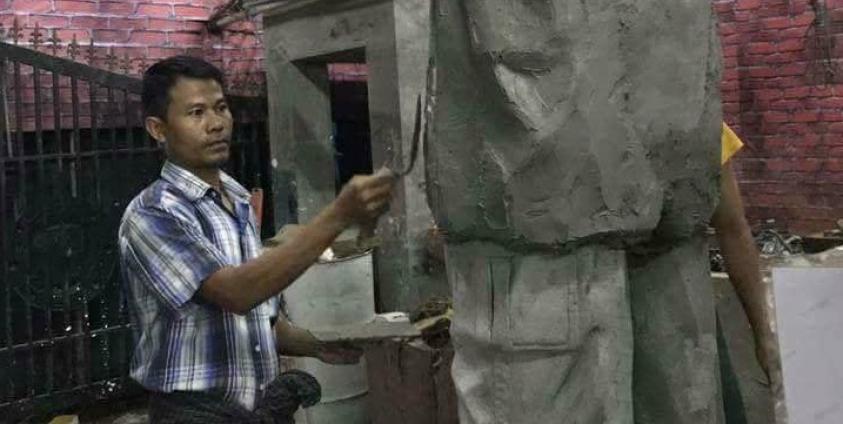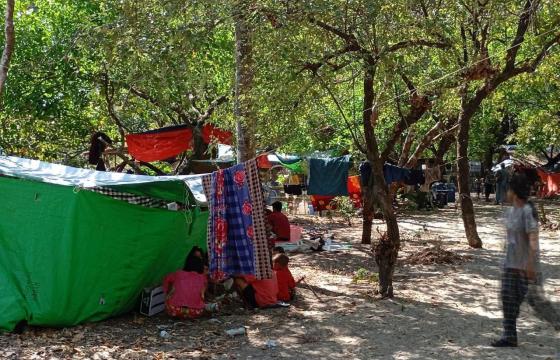A statue of Karen ethnic icon Saw Ba U Gyi will find temporary shelter in the Karen National Union (KNU)’s Kya-in Seikkyi township office, after official objections were raised to its public installation.
The Karen New Year’s Day Organizing Committee originally planned to erect the statue in Payathonzu, also known as Three Pagoda Pass, on the 80th Karen New Year’s Day. But the committee will instead hold the statue at the KNU office while applying for permission to the KNU central office and the state-level Joint Ceasefire Monitoring Committee (JMC-S), according to committee chair P’doh Saw Maung Shwe.
“We are unable to erect it at our original location,” he said on December 1. “We won’t stop. We will keep trying.”
The committee had been previously told that only statues of the country’s leaders and martyrs that represent all ethnic groups are allowed after it applied to the KNU, the Kayin (Karen) State chief minister and the JMC-for permission to install the statue.
In a November 26 letter, the JMC-S told the committee that the government and Tatmadaw would only permit the statue to be stationed in Lay Wah camp, the KNU’s Hpa’an district headquarters.
The JMC-S also warned the KNU against violating national laws as a signatory of the October 2015 Nationwide Ceasefire Agreement (NCA).
“They told us to wait in this interim period because while [Saw Ba U Gyi] was a Karen leader, he wasn’t a leader of the country. Saw Ba U Gyi used to be a minister. We will have a hard time explaining this to the elders. Neither the NCA nor the JMC regulations include anything about the statue. The NCA was signed for equality. I want them to allow us [to install the statue]. We can only achieve this when we obtain a democratic federal [Union] quickly,” Nan Myint Tin, a civilian JMC-S representative, told KIC News.
Saw Ba U Gyi, who was born to a Karen family in British Burma in 1905, studied law in London and was called to the English Bar in 1927. He served as the Minister of Revenue in British Burma before joining the Anti-Fascist People's Freedom League (AFPFL). He was elected as chair of the KNU at a 1947 emergency conference, and served as its first president from 1945 until his death, on August 12, 1950, leading an armed insurrection in Kawkareik township.








